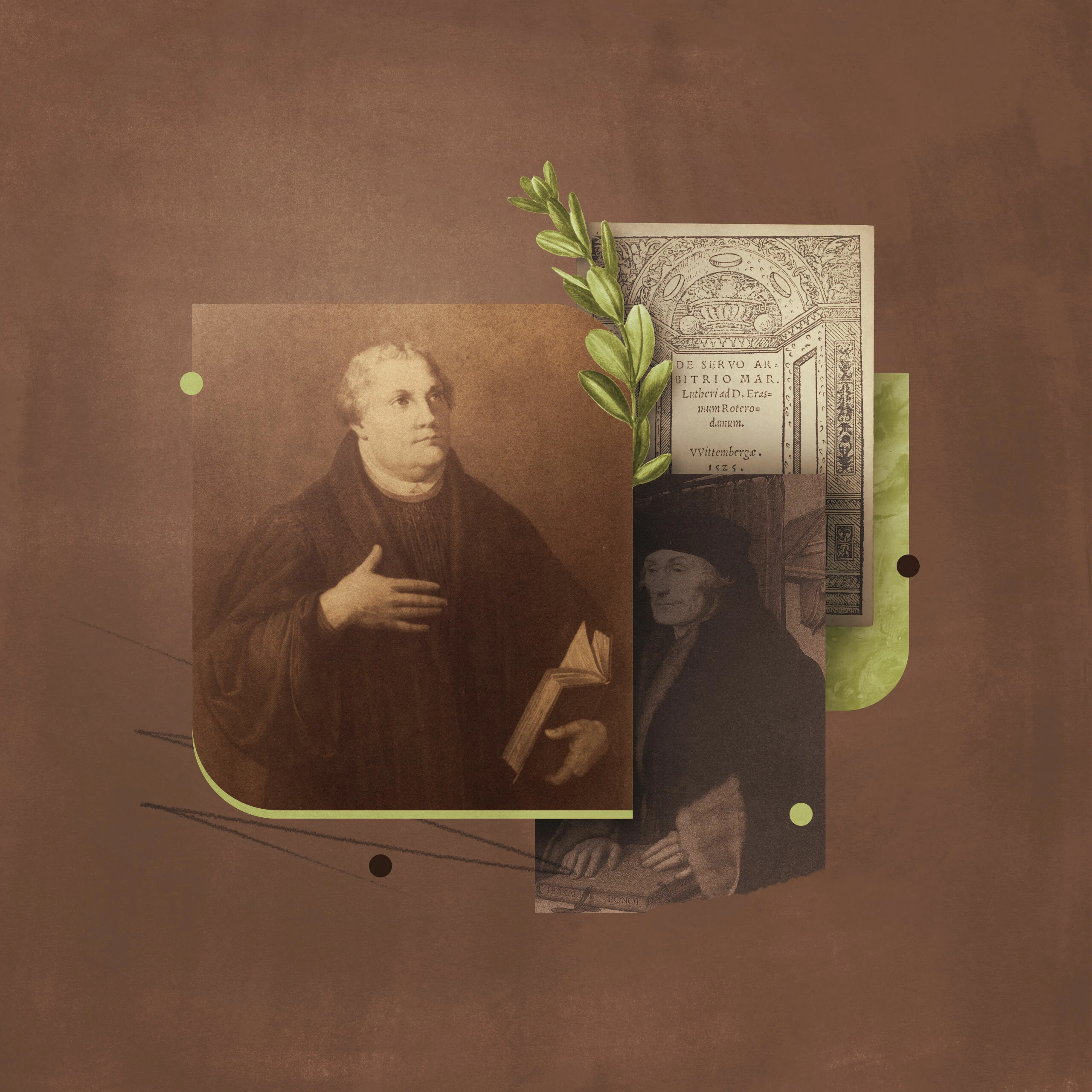What Is the Bondage of the Will?

Martin Luther looked upon The Bondage of the Will and his Shorter Catechism as his most significant writings. The first of these, The Bondage of the Will, was Luther’s exposition of the monergism that characterized the Reformation. Monergism is the view that when a soul passes from death to life, from unbelief to faith, the sole “energizing” power that accomplishes this is the power of God. Monergism is contrasted with synergism, the view that divine and human power freely cooperate in the soul’s regeneration. Luther and the other Reformers derived their monergism from the Bible, read through the lens of the theology of Augustine, the greatest of the Western church fathers.
All the Reformers were devout Augustinians and shared Luther’s monergism. But why did Luther think he needed to write a lengthy book defending it? It was because one of Europe’s most influential scholars and most brilliant communicators, Erasmus of Rotterdam, criticized Luther’s theology on precisely this point.
Prior to Luther’s emergence on the public stage, Erasmus had been Europe’s foremost advocate of church reform. He had mocked corruptions within the Roman Catholic Church with devastating satire. He had published many new editions of the writings of the early church fathers and viewed them as better guides than the medieval Catholic theologians. Above all, in 1516 he had published a new scholarly edition of the Greek New Testament (the first ever printed edition) as a corrective to the Vulgate, the Latin translation that had dominated the Western church for one thousand years.
When Luther found himself launched into the business of reform in 1517, Erasmus had at first supported him. However, despite Erasmus’ semi-Protestantism, he could never bring himself to reject the papacy. His ideal was a reformed papacy that championed his views. When he saw Luther, Zwingli, and other Reformers denying papal authority and reforming the church in Germany and Switzerland as a non-papal body, Erasmus’ blood ran cold. He saw this as the destruction of the church’s unity. Lobbied by the supporters of the papacy to speak out, Erasmus finally yielded, and in 1524 wrote a book against Luther titled The Freedom of the Will.
Erasmus’ choice of topic reflected his theology. He had a high view of the dignity and capacities of human nature, which he felt was being undermined by the monergism of Luther and the other Reformers. If God’s power in Christ, communicated by the Holy Spirit, was the only power that transformed people from unregenerate unbelievers into regenerate believers, what became of man’s own will, capacity, liberty, and choices? Luther said that human nature outside of Christ was in helpless and hopeless servitude to sin and Satan. Erasmus saw this as a needlessly and demoralizingly pessimistic view. As a result, he decided to critique Luther’s monergism. In its place, he put a form of synergism, arguing that God and man work together freely at every point to achieve human salvation.
To the triune God we owe the whole of our salvation—the plan, the provision, and the application.
In retrospect, Erasmus’ personal variety of synergism came to be rejected even by most Roman Catholic theologians. It gave far too much weight to the alleged autonomy of the human will. Still, at least Erasmus had declared himself opposed to Luther and the theology of the Reformation. That was enough for Roman Catholics in the heat of the moment.
Luther responded with The Bondage of the Will in 1525. In this classic statement of the Reformation view of salvation, written with pulsating vigor and vivid eloquence, Luther demolished Erasmus’ man-exalting synergism. For Luther, Erasmus was simply failing to take seriously the biblical witness to the depth and gravity of human sinfulness. In consequence, Erasmus also failed to appreciate rightly the profound, radical nature of God’s saving action in Christ and through the Spirit. It’s not that God asks people to cooperate with Him in salvation; in and through Jesus Christ, He sovereignly bestows upon utterly lost sinners a new creation, a new birth, a resurrection from spiritual death. To the triune God we owe the whole of our salvation—the plan, the provision, and the application. “Thanks be to God” is the keynote of all Christian meditation. In this context, Luther also defended the doctrine of election as God’s free, unconditional, and unmerited choice of sinners.
It is hard to sum up The Bondage of the Will succinctly, because it is so rich with Luther’s whole theology. He deals with the clarity of Scripture, the necessity of doctrine, the certainty of faith, the dialectic of God hidden and God revealed, the distinction of law and gospel, the non-speculative character of theology (grounded in Scripture, not human philosophy), and other important topics. One might consider it the nearest thing Luther wrote to a systematic theology. It has always been admired by Reformation Protestants, both Lutherans and Reformed.
When a plan was mooted to gather all Luther’s writings into a collected edition, the great Reformer said this:
Concerning [the idea] that my writings be published in collected volumes, I am quite indifferent about it, and lack all enthusiasm. . . . For I have no wish to recognise any of them as mine, except perhaps the one on the Bondage of the Will and the Catechism.
Thankfully, there are good translations of The Bondage of the Will for us to read today. When we do, we become aware that we are sitting at the feet of a master theologian and expositor of Scripture. May God enable us to value this classic of the Reformation and learn from its wisdom.
Editor’s Note: This article was originally published on May 29, 2025.

